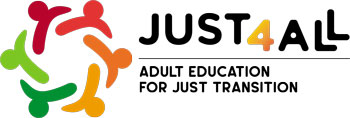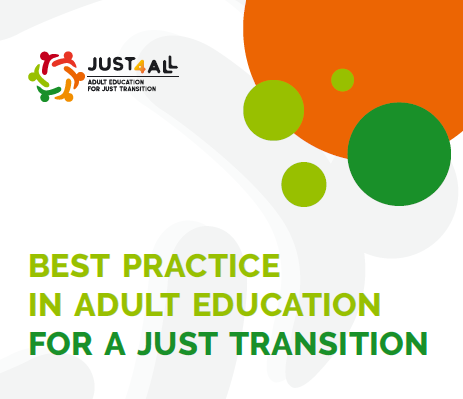A Practical Toolkit to Embed Social Justice in Adult Learning and Policy
Europe’s twin green and digital transitions carry the promise of more sustainable and inclusive societies. But without intentional design, these transformations risk deepening existing inequalities. The JUST4ALL project responds to this risk with a strong proposition: adult learning and education (ALE) must be placed at the heart of the just transition to ensure that no one is left behind—especially those most at risk of exclusion, such as women, migrants, and lower-skilled adults.
This Policy Toolkit builds on the findings, experiences, and outputs of JUST4ALL to provide concrete guidance for designing policy-coherent adult learning systems that promote fairness, participation, and empowerment. It supports policymakers, education providers, and civil society actors in embedding social justice in ALE policies and practices.
Grounded in a multi-level process of research, dialogue, and co-creation, the Toolkit draws from:
- The Just4all Background Papers framed key concepts and mapped the intersection of adult education with green and digital transitions, migration, and inclusion.
- The set of Good Practice Examples collected throughout Europe, highlighting how community learning, inclusive methods, and just transition initiatives are already shaping change.
- The Just4All MOOC, an interactive, 8-module course built on these good practices and structured around themes such as social innovation, competencies for the future, and participatory governance. Over 100 learners piloted the MOOC, offering rich feedback and engagement.
- A structured Policy Roadmap to Sustainable and Inclusive Communities, developed through collaborative reflection and consultation, that outlines strategic directions for integrating ALE into just transition frameworks at local, national, and EU levels.
- A series of Policy Events and Webinars, featuring over 25 experts and practitioners, which created space for dialogue and knowledge exchange across sectors.
The Toolkit is divided into thematic areas and tools that can be adapted to various contexts. It includes both tested tools from the MOOC and new tools developed during the project’s final phase, along with guidance to build your own processes and apply what works in your reality.




